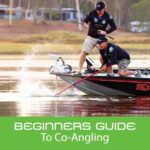Canada Day Flash Sale: 15% Off
+ Free Shipping on $75* | No Code Needed. (* before tax)
Canada Day Flash Sale: 15% Off
+ Free Shipping on $75* | No Code Needed. (* before tax)
So you’re thinking about entering into your first tournament as a co-angler. I know when I registered for my first tournament, I was excited, but also nervous at the thought of stepping onto something new and also stepping into someone else’s boat, fishing the way they do and being competitive. Now that I look back on it, it’s quite easy to do. Back then it would have been a lot easier for me if I had a guide to follow, so I knew what I should bring and the do’s and don’ts of tournament fishing. Hopefully, by the time you’ve finished reading this, you’ll have the confidence to go into your first tournament and really give it your best shot.
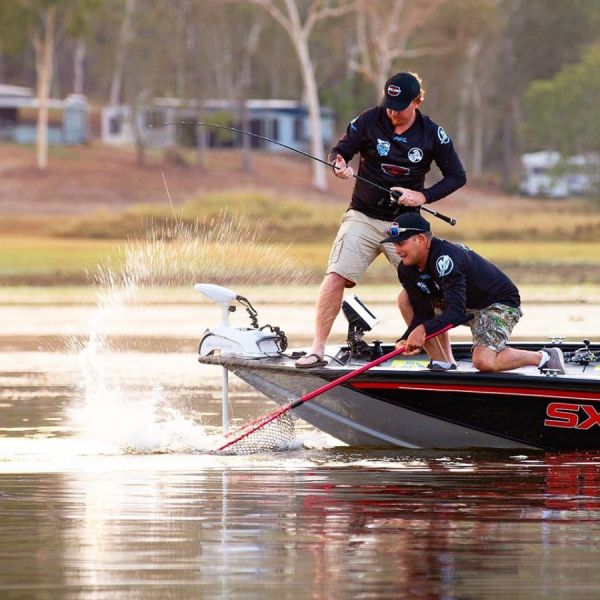
If you’re keen on entering any Bass fishing tournament, it pays to do a bit of research on where you’d like to fish first so that you’re comfortable with the dam and the surrounds. My advice would be to pick a dam that you’ve visited before and had some experience on. I chose to do locals like Somerset and Boondooma first as these were two dams that I’d had some experience on and had a bit of an idea of what lures I should be taking and the gear that I’d need. To be honest though if you’re going in as a co-angler you shouldn’t be going in to dominate every comp you go in, yes it’s great to do well but the whole point you should be there is to LEARN.
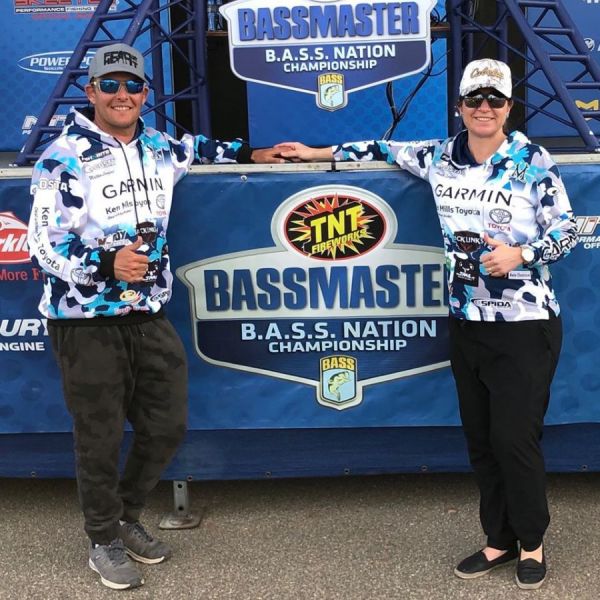
Nov 2019 “If you had of told me 6 years ago when I started fishing tournaments, that I’d be standing on the @bass_nation stage, in America, with an 8th place finish to my name, I’d of thought you were mad”
The first step is registration. Once you know what tournament you want to do all you have to do is navigate to the tournament you want to do on the BASS Australia website, click on register and follow the prompts. It’s an easy to follow process and the online payment options are secure. Your name will be added to the entry list once Drew has received your registration and you are ready to go. It’s important to note that if you want a guaranteed spot you’ll need to register reasonably early, so don’t leave it to the last minute. This can potentially leave you at the bottom of the list and if it’s a popular tournament with more co anglers then pros, it could mean that you’d miss out. If this is the case your registration would have to be moved to the next available comp that you could do, or your money will be refunded.
As I said before it’s always good to go into any situation, knowing what you’re getting yourself into. I always make sure that I have looked at maps of the dams, and check out any fishing websites that may specialise in fishing that particular dam. That way you’ll have some idea of the lay of the lake, what gear to pack and what rods you’ll need. The rest will depend on what pros you’ll get over the three sessions and how they’ll plan to be fishing, these are the guys that you’ll ultimately gain all the valuable information and experience from.
When registering for a B.A.S.S Australia event you will be sent an entry pack in the mail. The entry pack includes all the paperwork, tournament timings, rules and regulations, registration papers, a dam map and weight in location map. That way you have all the information you need so you’re not left guessing or left in the dark.
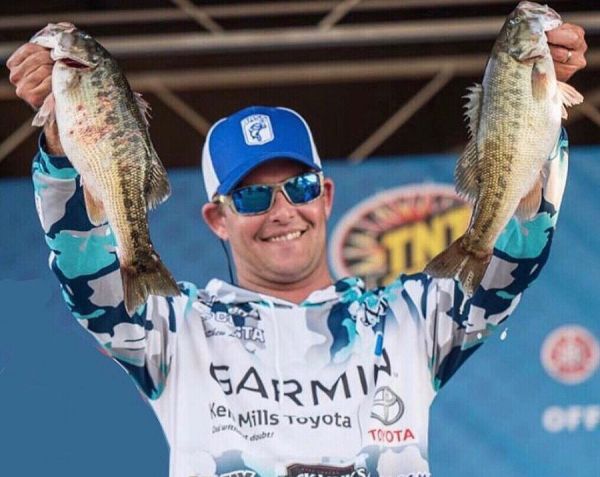
Bassmaster stage Nov 2019 “Today I just went out and had some fun doing what I’d worked out in practice. Turns out I’m not far off the pace.”
As I stated earlier, it’s always good to do some research on where you’ll be fishing for your first tournament so you have a bit of an idea what to take in regards to tackle and rod set ups. In preparation for any comp I will put together a selection of gear to take along with me. Some of which you won’t actually use but it’s always good to be prepared, just in case. Here’s a list that I always take with me out on the water as a co-angler.
Now I know that may sound like a lot of tackle and gear, but remember most of the items and lures are generally small and light weight and can be stored easily and compact in storage trays in your back pack or tackle box/bag. The lures you take will also depend on what dam your fishing and what the go to lures are at the time. I always take most of my gear from home with me so that I have it handy and can use it to stock up my tackle that I will take out in the boat.
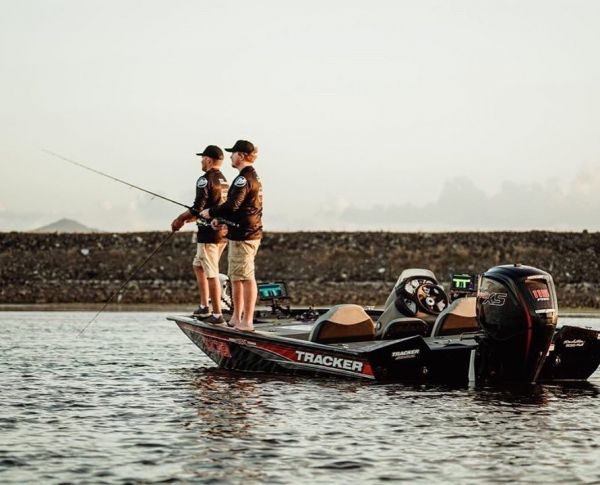
As far as rods go, I generally take no more than three rods, again this depends on the dam. Commonly, I’ll take the following.
It’s very important to find out what you’ll need for the sessions fishing by asking the pros that you’ll be fishing with when you meet them at the pairings.
The day before the event, ‘Prefish day’ is the day when you can pre fish the dam with a pro if you’ve already pre-organised to do so, otherwise you can fish by yourself from your own boat. As a co-angler it’s not that important to pre-fish but if you’ve organised with a pro it can be helpful, so you know what lures are working and what gear you’ll need for the two tournament days ahead. Nominations will take place throughout the day from 10.30am till 4.30pm at a predetermined “weigh in” location that you’ll find in your entry pack, this is where you’ll take your signed registration papers, sit down with Drew and have any questions answered that you may have.
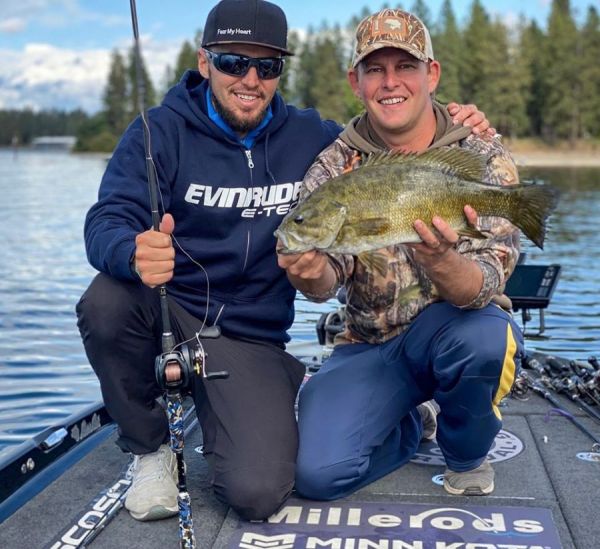
Generally the tournament briefing will take place at 5pm that afternoon, Drew will go through the rules and any issues that relate to that weekends tournament. At the end of the briefing is when you will be paired up with three pros for the 3 sessions. Make sure you introduce yourself to the 3 boaters and have a brief chat to them about where you’ll meet before take-off. It’s very important to make sure you know where you will meet them, have an idea of how they want to fish for the session and what room they have in the boat so you can take what you need. Don’t be afraid to ask questions at the pairings because these guys are only too happy to help out and don’t be afraid to let them know that this is your first comp and they will talk you through the process as well.
In my couple of years as a co-angler I have picked up a few things that I feel will be valuable for you to know so it makes the tournament experience a little easier and more enjoyable.
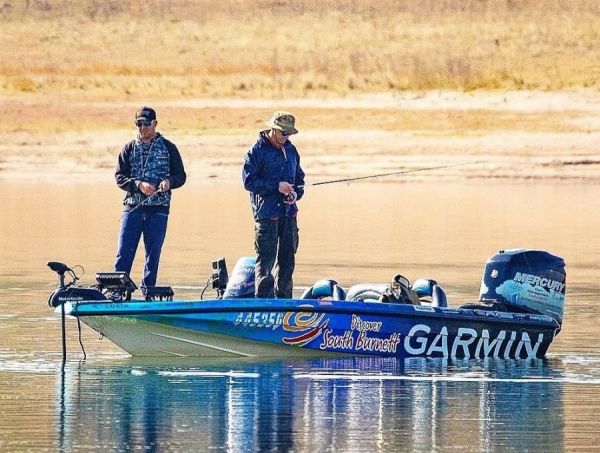
After each session is completed a weigh in follows. This is where you will take your two best fish from the session, have them weighed, and talk about your time on the water. It’s a great opportunity to talk about what lures you used and the techniques used to catch them. It’s also a great opportunity to thank any sponsors and a good chance to thanks the boaters you went out with.
If you weren’t lucky enough to catch a fish I always make sure I go and listen and see who has got the big ones. Again this is another great learning opportunity to see what tackle worked on the fish that day, what techniques they used to catch them and even where they were fishing. This isn’t always the case in the initial two weigh-ins but when it’s all over the secrets are revealed. I sometimes go as far as fishing the winning pattern so I can take experience from it in case it ever happens again.
No matter how you look at it co-angling is a whole heap of fun, you will take in an absolute ton of valuable fishing information. Every time I enter an event I take away so much valuable information, be it good or bad it will make you stronger, more versatile angler.
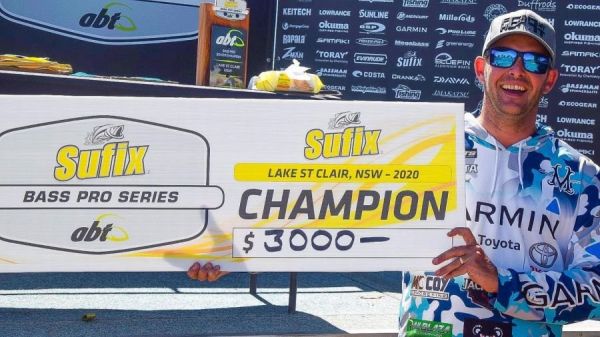
If you’re interested in entering a tournament in Australia the best thing to do initially is give Drew McGrath a call he is a very professional tournament director and will give you all the information you need to know about registering and how the series works, give him a call anytime on 0400 655 326. Give it a go, it may be just the challenge you’ve been looking for!
